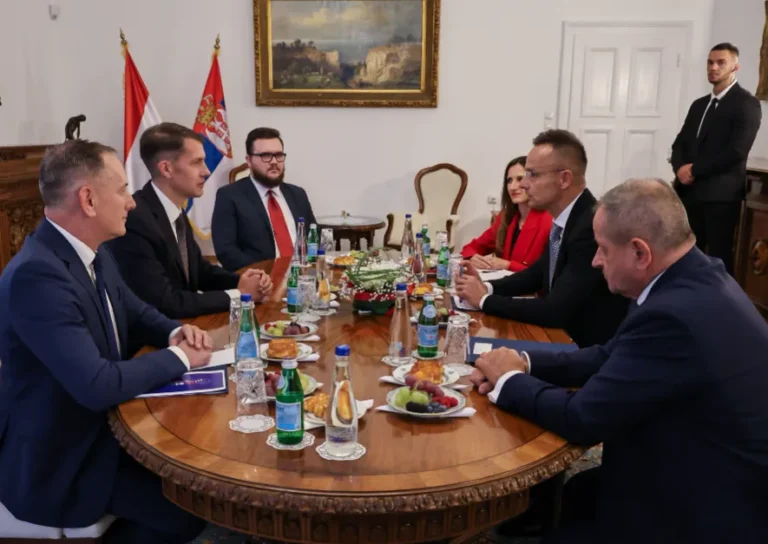Serbia
Serbia’s president expects deal between Hungary and Russia over oil company

Strategic Serbian refinery could come under Hungarian control thanks to close Trump–Orbán and Putin–Orbán ties

Hungarian energy giant MOL emerges as frontrunner to buy Russian stake of Serbian oil company

Budapest-Belgrade travel time to drop to 3.5 hours as rail tests finally begin in Hungary

Serbian oil company targeted for acquisition, with Mol also in the race

Hungarian MOL to boost its crude oil deliveries to Serbia

Orbán cabinet: Ukraine runs a corruption machine at the highest state level

Another hotel planned for Budapest: The investor behind “Mini Dubai” isn’t giving up

Hungarian energy company Mol secretly plans to take over sanctioned Serbian oil giant

Where is the usual anti-EU rhetoric? Hungary’s foreign ministry reacts cautiously to Serbian border guards harassing Hungarian students

Hungary once again goes its own way: The only EU country that refused to sign Serbia condolence statement

Outrageous: Serbian border control makes Hungarian students undress and wait for hours

Serious consequences expected after refinery fire in Hungary: One neighbouring country could face the worst energy crisis

Hungarian police officers to protect Bulgarian, Serbian borders

US sanctions cripple Serbia over Russian oil, Hungary also affected

New era in transport: Serbian section of Budapest-Belgrade railway opens!

FM Szijjártó in Serbia: Hungary does not give up Russian oil, Druzhba pipeline

Former Hungarian intelligence chief warns of likely Russian interference in 2026 elections





 ZH
ZH IT
IT DE
DE HR
HR NL
NL FR
FR JA
JA RO
RO RU
RU ES
ES TR
TR
